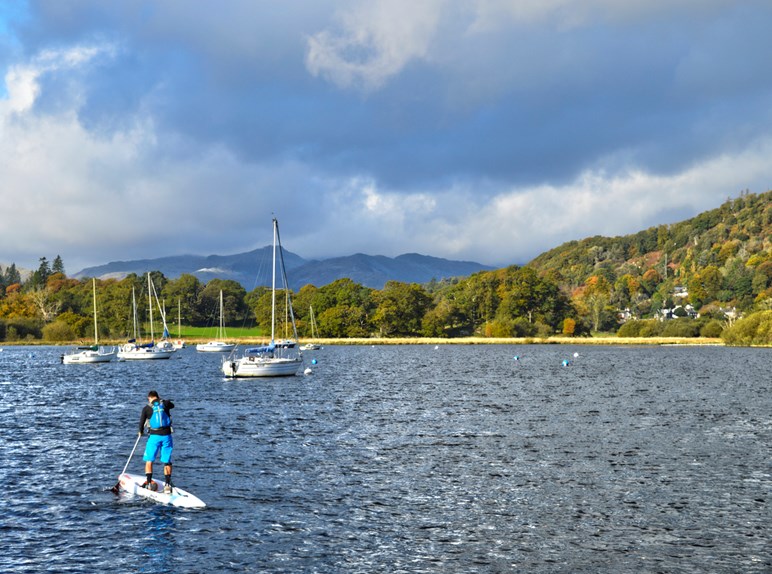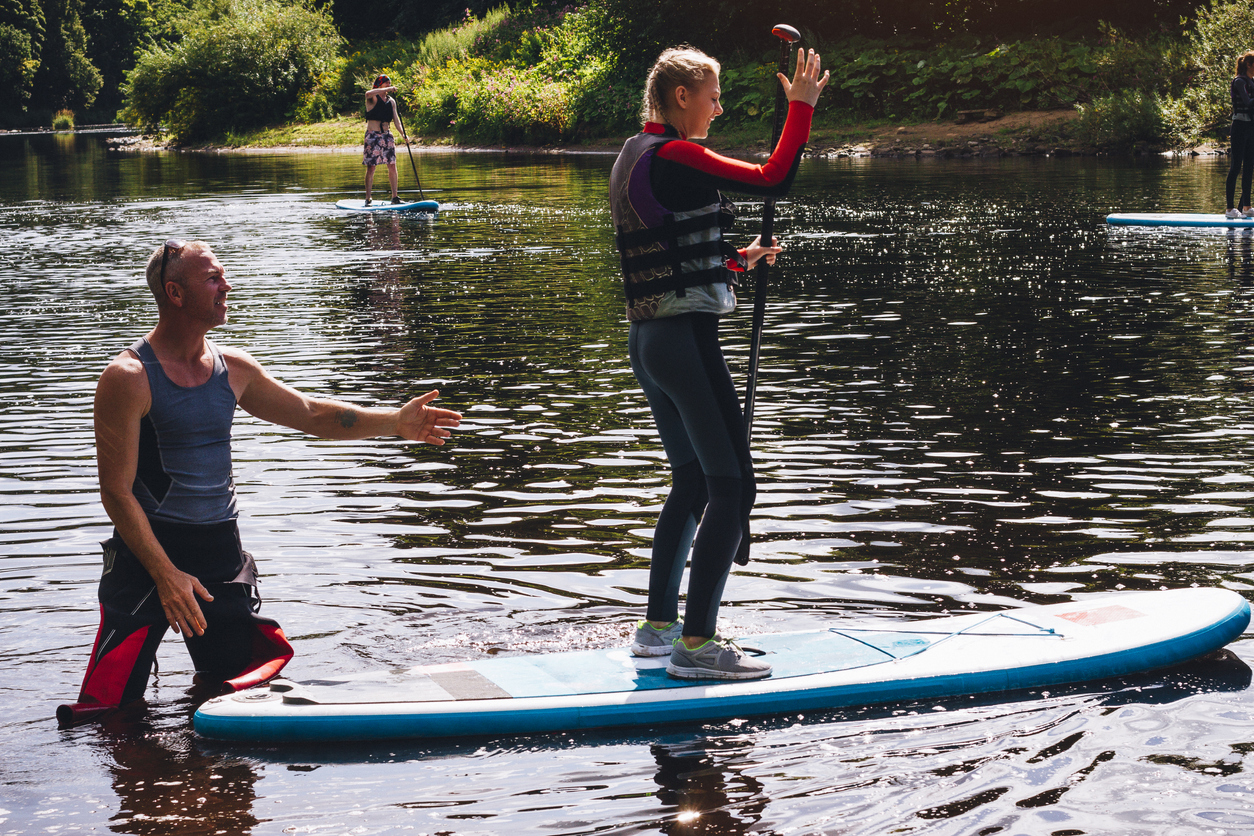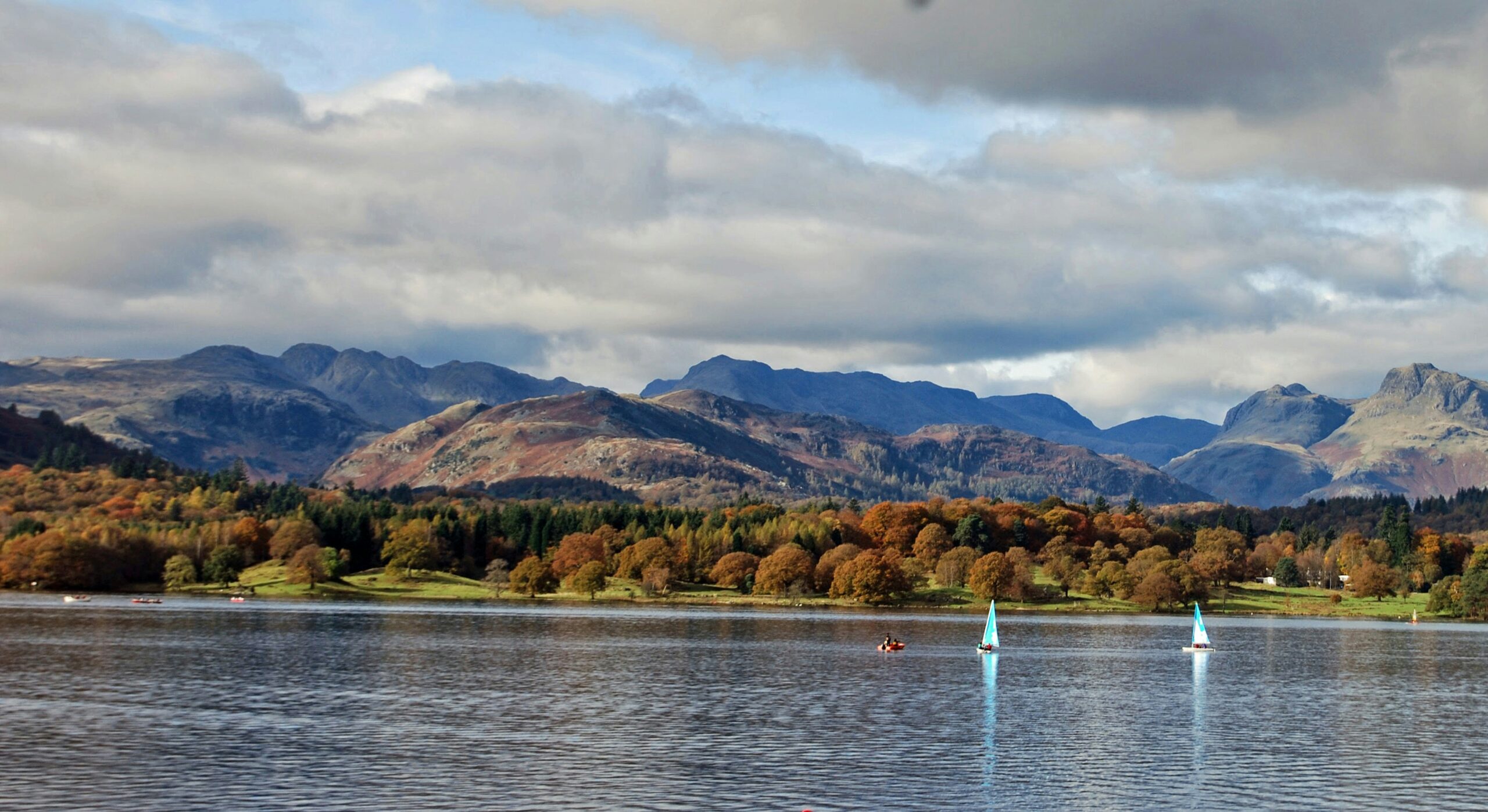With its breathtaking scenery and many bodies of water, the Lake District is a stunning and popular destination for walkers, hikers and nature lovers. In recent years paddle boarding has gained popularity and can be done on calm water like lakes or tarns – which the Lake District has plenty of.
Stand up paddle boarding, often shortened to SUP, or just paddle boarding is a water sport that can be enjoyed by a range of ages and abilities. There are plenty of places offering stand up paddle boarding lessons and paddle board hire in the Lake District, so what better place to try out the sport.
In this blog post, we’ll discuss everything you need to get started with paddle boarding including what it is, how to do it, how much a board costs, what to wear and where you can paddle board safely in the Lake District. So, let’s get into it.

Essentially, paddle boarding is a fun outdoor water sport where you stand on a board and use a paddle to move through the water. It’s a great way to enjoy the outdoors and get some low-impact exercise while exploring some of the UK’s stunning lakes, rivers and even the ocean. Depending on where you choose to paddle board, it can be a relaxing experience or thrilling adventure.
The board used for paddleboarding is typically a large stable board that is designed to provide balance and buoyancy, allowing you to glide smoothly across the water. Blow up paddle boards, also known as inflatable paddle boards, are a popular alternative to traditional hard paddle boards. They are made of a durable PVC material and can be inflated and deflated for easy transport and storage.
To start paddle boarding, you’ll need a board, leash (to keep the board attached to you) and a personal floatation device. Now you’re good to go.
Begin in shallow water where the board is stable. Start by kneeling on the board, then slowly rise to a standing position with your feet shoulder width apart.
Hold the paddle with one hand on the top grip and the other on the shaft. Use your core to paddle rather than just your arms to maintain efficiency and reduce fatigue.
To turn, paddle on one side of the board, or use the reverse stroke by paddling backward on the opposite side.
Paddle boards can vary in price depending on the brand, quality, size and features. You can find paddle boards ranging from around £200 to over £1,000. When choosing a paddle board, it’s essential to consider your budget, intended use and desired features.
Some paddle boards come with all the accessories you need to get started including pumps, paddles, waterproof bags and more, which is particularly useful for beginners. Shopping around and comparing different options can help you find a board that fits your needs and budget.
When choosing what to wear for a paddle board outing, you should opt for appropriate clothing for the weather conditions and the temperature of the water.
When you’re paddle boarding in the summer, you can wear a few light layers or just a swimming costume or swim shorts. You’ll also want to bring a hat, sunglasses and sun protection with you.
Winter paddle boarding requires something a little warmer and a wetsuit will keep you a lot more comfortable on cold days. Wetsuits work by trapping a tiny bit of water between your skin and your suit which is warmed by your body to keep you nice and warm. Alternatively, instead of trapping a layer of water like a wetsuit does, drysuits create a warm layer of air against your body.
We’d recommend wearing SUP shoes or gripped trainers when stand up paddle boarding, though if you’re confident then you can paddle bare foot if preferred. A personal floatation device and SUP leash are also essential pieces of kit for paddleboarding.

The Lake District offers a variety of bodies of water suitable for paddleboarding, including large lakes as well as smaller and more secluded lakes. Each body of water offers a different experience, from calm waters suitable for beginners to more challenging waters for experienced paddleboarders.
Dotted across the region, there are also plenty of boating centres where you can hire paddleboards from including Coniston Boating Centre, Brockhole on Windermere, Derwent Water Marina and Wake & Surf Ullswater. Regardless of your skill level, there is a body of water in the Lake District suitable for you to enjoy paddleboarding safely.
Below we’ve included a list of popular places to paddle board in the Lake District:
Now you’re equipped with the knowledge you need to get started with paddle boarding, get out there and enjoy the beauty of the Lake District National Park to its fullest. When paddle boarding in the Lake District however, always remember to remain cautious and know your limits.

Here at Made In Cumbria we bring together all the creative industries found in Cumbria and the Lake District in one central hub. The English Lakes provides the natural ingredients for many makers and producers in Cumbria and our extraordinary surroundings offer outdoor enthusiasts with one of nature’s most incredible playgrounds. Explore traditional Cumbrian gifts, mouth-watering food and drink, talented artists and award-winning designers, and find out about all the region has to offer.
Cumbria Chamber of Commerce
3rd Floor
Broadacre House
16-20 Lowther Street
Carlisle
CA3 8DA
0845 226 00 40
©Cumbria Chamber of Commerce 2023 | By: We Are Digital
Join our mailing list and get all the latest news and up dates from Made In Cumbria.